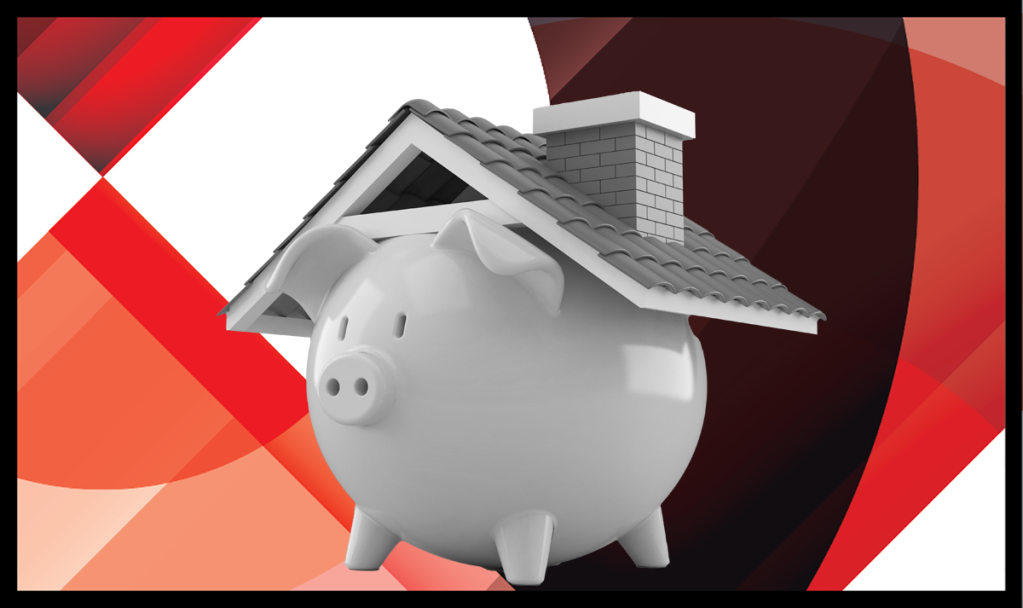
In 2020, housing was an economic bright spot for a nation shuttered inside. Globally speaking, things look much different roughly a year later – jobs are returning by the millions, a series of viable vaccines are being deployed across America, stimulus checks have hit bank accounts and mortgage rates are ascending rapidly from nearly a year of historic lows.
In December, when rates were still at record lows and the vaccines had not been widely distributed, the Mortgage Bankers Association projected 30-yr mortgage rates at 3.2% in 2021, 3.6% in 2022 and 4.1% in 2023. Those forecasts have changed dramatically – as of March 19, the MBA revised those numbers to an average of 3.6% in 2021, 4.5% in 2022 and 5% in 2023. The last time rates reached heights of nearly 5% was in November of 2013, and before that, nearly a decade ago in 2011, according to Freddie Mac’s PMMS.
Joel Kan, the MBA’s associate vice president of economic and industry forecasting, pointed to various relief packages that gave households aggregate spending power and market sectors opening back up. Leisure, hospitality and travel in particular showed big gains.
Essentially, homeowners had money burning a hole in their pocket and now that they can spend it on industries that were previously hindered, the amount of money that is getting pumped back in to the economy could eventually push mortgage rates far above pre-pandemic levels.
“The expectation, and the realization, of stronger growth and a stronger job market puts upwards pressure on rates, fundamentally, through the rest of year,” Kan said. “The spending and stimulus bills needed to be funded somehow, and that is going to come from Treasury auctions which is going to push rates upwards.”
That said, Kan does expect some near-term volatility in the market regardless – rates may fall and then climb back up at the drop of a hat. But generally speaking, the MBA isn’t changing its forecast on rising mortgage rates for the coming years.
In the past two weeks, rates have fallen around 14 basis points. Logan Mohtashami, HousingWire’s lead analyst, explained the bond market closed at a very meaningful level last week (1.75%), and because there was no follow-through selling, short term bonds are getting bought. This essentially means the market is hovering, he said.
“Technically speaking, the U.S. economic data is so good that it would warrant a 10-year yield around 3% and a mortgage rate at 5%,” Mohtashami said. “Because COVID is still here and the rest of the world’s economies aren’t rebounding as well as us on bond yields, mortgage rates don’t have that escape velocity yet. And that’s the main reason I’m capping my 10-year yield peak forecast at 1.94%.”
For the month of March, mortgage spreads compressed further. The primary/secondary spread narrowed for the seventh consecutive month to 113 basis points, the smallest gap since February 2020. Spreads have compressed significantly over the past year, and while lenders may be willing to absorb these costs to maintain high volumes for a little while longer, Fannie Mae economists believe lenders are likely to increasingly pass a greater share of higher funding costs onto borrowers if the 10-year Treasury rate continues to move upward.
Alongside rising mortgage rates, economic groups are revising their expectations for the transition from the refi market to a purchase market.
According to Fannie Mae’s economic and strategic research group, the GSE expects refinance origination volumes in 2022 to total $1.1 trillion, a 48% decline from 2021 and a $40 billion downward revision from last month’s forecast. It also estimates that around 42% of all outstanding mortgages have at least a 50-basis point incentive to refinance at current rates, which is down from nearly 70% at the end of 2020.
That 10 basis point drop in rates last week gave an extra 2 million “highly qualified candidates” the opportunity to reenter the market, according to data analytics provider Black Knight. These candidates are defined as 30-year mortgage holders with a maximum 80% loan-to-value ratio and credit scores of 720 or higher, who could shave at least 0.75% off their current first lien rate by refinancing.
But a turnaround of that significance in just one week illustrates how volatile the refi market is.
“Despite rates still sitting at record lows, refinances are just that more sensitive to rate changes,” Kan said. “Rates aren’t a deal breaker for purchase transactions because its more about the price. And now we are hearing anecdotes from realtors and lenders that competitiveness is driving home price appreciation even higher. So short term, we are still looking at purchases struggling in this kind of demand.“
While industry experts advise borrowers to lock in the rate they have now, the window may stay open longer than some think.
The Federal Reserve has been unwavering in its stance on maintaining inflation at 2% before any form of new policy can be made. If inflation does rise above its target, it would put upward pressure on mortgage rates because investors who buy fixed assets use inflation as the mainstay of their calculation that determines the yield, or return, they are willing to accept.
“Most members of the committee did not see raising interest rates until 2024, but that isn’t a committee forecast, it isn’t something we vote on or act on as a group…it really is just our assessment,” said Fed Chairman Jerome Powell in a Thursday meeting. “Markets focus too much on what we call the economic predictions, and I would focus more on the outcomes that we’ve described.”





